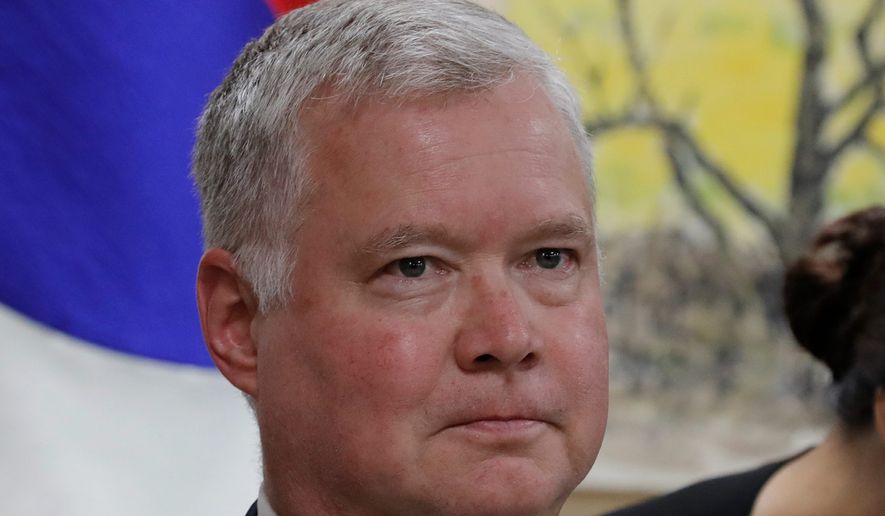Fifteen months after President Trump’s diplomatic outreach to North Korean leader Kim Jong-un, the U.S. has yet to see “meaningful or verifiable” evidence that Pyongyang has begun to scale back its nuclear weapons program, the State Department’s point man on talks with North Korea told Congress on Wednesday.
“We do not have any verifiable or meaningful evidence that they have yet made that choice,” Stephen E. Biegun, nominated to be deputy secretary of state, told a Senate Foreign Relations Committee confirmation hearing. But, he added, “our hypothesis is they can make that choice.”
With Mr. Trump under growing pressure to show progress in the stalemated talks as he enters a presidential election, “ultimately, it’s the North Koreans [who] have to make the choice” to continue negotiations, Mr. Biegun said.
The talks have shown little progress since a Kim-Trump summit broke up abruptly without a deal in February in Hanoi, but Mr. Biegun emphasized that the “window is still open” for the two leaders to come to a diplomatic agreement. So-called “working-level” talks between Mr. Biegun’s team and North Korean diplomats broke up quickly in Sweden last month after making no announced progress.
The Senate confirmation hearing coincided with the testimony of U.S. Ambassador to the European Union Gordon Sondland before the House impeachment inquiry, despite guidance from the State Department and the White House to not appear.
Mr. Biegun, a close adviser to Secretary of State Mike Pompeo, told the Senate panel that the department has made it “clear” that “there will not be disciplinary action by the State Department against any of our employees who are testifying under subpoena in front of the House inquiry commission.”
Several senior State Department officials, including a number of Foreign Service officers, have talked with the House committee despite the administration’s criticisms of the impeachment drive.
“All of us should be guided by the professional requirements as leaders in the Department of State, which precludes us from making political considerations on personnel issues or assignments,” Mr. Biegun said.
On the North Korean talks, Pyongyang has set a year-end deadline for the U.S. to offer fresh negotiating proposals and lift harsh economic sanctions, but the American diplomat rejected such a timeline.
“We do not have a year-end deadline,” Mr. Biegun insisted. “That’s an artificial deadline set by the North Koreans, and unfortunately it’s a deadline that they’ve set upon themselves.”
He warned that “we could see a possibility of going back to some of the more provocative steps that preceded the start of this diplomacy to begin with,” if North Korea does not show more flexibility by the end of the year.
“I think that would be a huge mistake and a missed opportunity” by North Korea, he added.
Mr. Biegun’s remarks came just days after an adviser to the North Korean Foreign Ministry said the Kim regime was not “interested” in additional denuclearization talks without more concessions from Washington, despite the Pentagon’s recent announcement that it called off planned joint aerial military exercises with South Korea in an “act of good will.”
• Lauren Toms can be reached at lmeier@washingtontimes.com.




Please read our comment policy before commenting.